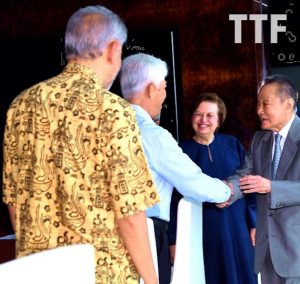
Angaindrankumar Gnanasagaran
In the aftermath of a watershed election in Malaysia last May, newly minted Prime Minister, Dr Mahathir Mohamad set about fulfilling his reform pledge which catapulted him back into office for a second term. Having ousted one of the longest ruling political parties in the world – the National Front (Barisan Nasional) which governed Malaysia for over 60 years – Dr Mahathir has with him a team with very little governing experience at the federal level who have yet to shed their siege mindset of being in the opposition.
To negate this conundrum, Dr Mahathir formed a five-person Council of Eminent Persons (CEP) led by Daim Zainuddin. Daim is himself a controversial and illuminating figure of the past, having served as former Finance Minister during Dr Mahathir’s previous tenure as Prime Minister. The council is primarily tasked with advising the cabinet on policy related matters, implementing the newly elected Alliance of Hope (Pakatan Harapan) coalition’s election promises and reviewing the country’s existing or proposed mega-projects and international business deals.
However, a recent spate of reports suggests that many leaders within the new government as well as the general public are growing uneasy over the council’s shadowy actions that seem to overstep the boundaries of its advisory role.
An advisory role
At the heart of this issue is the vague and ill-defined advisory role under which the council operates. Malaysia practices a flawed form of separation between the three branches of government (i.e. executive, legislative and judiciary) where power is very much concentrated in the hands of the executive and the Prime Minister – a legacy remnant of Dr Mahathir’s first term in office. Hence, the role of the CEP as advisor to the executive has cast doubts in many that the council serves as a higher power to the cabinet.
To begin with, the CEP is neither a creation of statute nor is it a body of enquiry under Malaysia’s Commissions of Enquiry Act 1950. Besides that, it wasn’t formed by way of a parliamentary vote, nor does it function as a select committee which is answerable to the country’s lawmakers.
This is very much reminiscent of China’s politburo structure where power is centralised within the hands of a small group of individuals. There is also the added furore to the council’s actions given that its five members are unelected by the people and are seemingly not held accountable to the country’s set of checks and balances.
Dr Mahathir’s cabinet, however, is insistent that they are not being arm-twisted by the CEP and act independently. However, glaring gaps in the government’s explanation of the CEP’s role must be addressed – mainly concerning the boundaries within which the council should operate.
Source: The Asean Post



